On the occasion of the 78th anniversary of the Land Management sector's tradition day (October 3, 1945 - October 3, 2023), Vietnam News Agency introduces an article by Mr. Dao Trung Chinh, Director of the Department of Planning and Land Resources Development ( Ministry of Natural Resources and Environment ) on the contributions of the Land Management sector to the cause of national construction.
"During the heroic historical days of the nation, on October 3, 1945, President Ho Chi Minh signed Decree No. 41, laying an important foundation for the birth of the Vietnam Land Management sector.
During 78 years of formation and development (October 3, 1945 - October 3, 2023), under the leadership of the Party, our country has gone through glorious historical periods, building an increasingly strong Vietnam, bringing peace, prosperity and happiness to the people. Accompanying the history of national construction and development, the Land Management sector has made great contributions to the revolutionary cause through the periods. The Land Management sector has made many marks and contributions to the development of the country, especially in advising and building land law policies to effectively promote land resources. Notably, the mark of connecting the land database with the population database to gradually put into operation to serve the work of State management and serving the people.
Illustration photo: Tuan Anh/VNA
Accordingly, the Land Management sector has advised the Party and the State to promulgate and implement many important land policies, contributing greatly to the cause of national liberation, construction and development of the country. Through each stage and each historical period, the legal policy system on land management in Vietnam has been gradually improved, making land an important resource in socio-economic development; ensuring food security; contributing to hunger eradication and poverty reduction, improving people's lives...
In particular, the Party and State's policies on land, especially the policy of extending the term of land allocation for rice cultivation and annual crop cultivation, along with the policy of restructuring the agricultural sector and applying technology, have encouraged farmers and enterprises to invest in production and business development. The most important change is to turn Vietnam from a country with food shortages into one of the countries with agricultural production that ensures enough food domestically, has strategic reserves and is a leading exporter of rice and agricultural products in the world.
The basic content of land management has gradually been clearly defined in the system of legal documents on land (from the Land Law 1987, 1993, 2003, 2013 to sub-law documents). The Land Law 2013 has created a solid legal framework for localities to effectively implement the broad management contents, adjusting the relationship of land ownership and use.
The Central Land Management Agency has developed and submitted to competent authorities for promulgation a system of land policies in accordance with the requirements of a socialist-oriented market economy. Land policies are no longer just administrative "commands" but have gradually shifted to being managed by mechanisms and economics, creating a huge internal resource to promote production development, attract foreign investment capital; and recognize the value of land use rights in the real estate market.
Land use planning and planning have made many important contributions to the effective and sustainable use of land, preventing land resource degradation; through land use planning and planning, land is allocated reasonably for use in accordance with the economic restructuring, meeting the development needs of each industry and each field. This work also promotes the development of economic zones and industrial zones, creating jobs and livelihoods for millions of workers; developing urban areas and infrastructure to serve economic, cultural and social development, ensuring security, national defense and environmental protection.
The recognition of land use rights, land allocation, land lease and issuance of Certificates of land use rights, house ownership rights and other properties attached to land have ensured that every plot of land has an owner, protected the ownership rights of houses and other properties attached to land, making land users and property owners feel secure in investing and using land effectively. Up to now, 78% of the total natural area in the country has been measured and mapped (at all types of map scales). The rate of first-time issuance of Certificates has reached over 97.4% of the total area of land types that need to be granted.
Land resources continue to be promoted, contributing to creating large revenues for the state budget, while better ensuring the rights of land users, the interests of the State and investors. According to the General Statistics Office, in the period 2015-2021, land revenue contributed to the state budget increased over the years; in 2015 it reached more than 85 trillion VND, by 2021 it reached over 228 trillion VND. On average, land revenue contributes from 12% to 15% to the budget, in some places land revenue accounts for over 30% of the local budget.
The administrative procedure reform work is focused on reducing and simplifying many administrative procedures, coordinating and sharing land databases among sectors and fields to contribute to creating favorable conditions for unlocking land resources to serve socio-economic development.
The Central Land Management Agency has focused on directing localities to concentrate resources and accelerate the progress of building land databases to serve the settlement of land administrative procedures in the electronic environment. Along with that, reviewing, evaluating, and determining appropriate administrative procedures to implement online public services at levels 3 and 4 and publishing a list of integrated public services, providing them on the National Public Service Portal to promote the reception of online land administrative procedure records so that people and businesses can still settle administrative procedures but minimize the need to go to the place to submit records.
To date, 24/63 provinces and cities have implemented electronic interconnection to exchange land data information between land registration agencies and tax authorities. 61/63 provinces and cities have implemented payment of financial obligations on land via the National Public Service Portal...
To continue promoting great achievements, in the coming time, all civil servants, public employees and workers in the Land Management sector will continue to unite, promote collective intelligence and strive to carry out basic tasks. In the immediate future, it is necessary to continue to perfect the institutions and land law policy system in accordance with the socialist-oriented market economy, creating a favorable legal environment for the State to "firmly grasp and tightly manage" land funds. In particular, coordinate to complete the submission to the National Assembly to promulgate the Land Law (amended); implement the Government's Action Program to implement Resolution No. 18-NQ/TW dated June 16, 2022 of the 13th Party Central Committee on "Continuing to innovate and perfect institutions and policies, improve the effectiveness and efficiency of land management and use, creating a driving force to turn our country into a developed country with high income". Along with that, the Industry completed the draft decrees guiding the implementation of the Land Law (amended), submitted to the Prime Minister for decision on adjusting the allocation of land use quotas for provinces and centrally-run cities...
The Land Management Sector will build and perfect the land data system to meet the requirements of state management of land in all fields; build the land information system into a part of the national data system; gradually transfer registration and transaction activities in the land sector to electronic transactions.
The sector will organize the management, exploitation and effective operation of the land information system; promptly update and correct cadastral data, basic land surveys, planning, land use plans, land prices, land statistics and inventories and other data in the land database.
The sector will focus on basic investigation, assessment of the potential and quality of land resources nationwide, with emphasis on innovating implementation methods and applying advanced technology in periodic and thematic land statistics and inventories to provide accurate data for state management of land and socio-economic development.
At the same time, perfect the planning system and land use plans, contributing to accelerating the process of shifting land use structure in accordance with the shift in labor structure and economic structure in the process of industrialization and modernization of the country; perfect the system of financial mechanisms on land with specific requirements such as the land valuation system becoming a financial tool to regulate land relations and manage the real estate market; build a land fund development system to ensure strict and reasonable development and management of land funds.
In addition, the Industry has improved its organizational system, enhanced capacity at all levels, and ensured unified state management functions on land nationwide; with clear division of labor and decentralization to operate effectively and have sufficient capacity to perform state management tasks and public services on land.
According to VNA/Newspaper
Source


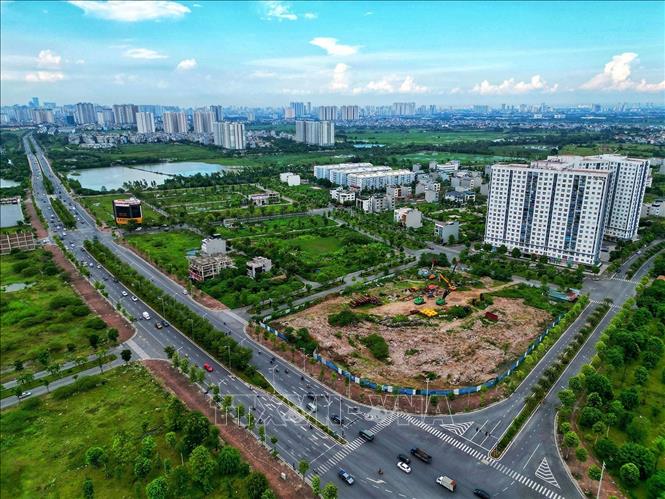


![[Photo] Flooding on the right side of the gate, entrance to Hue Citadel](https://vphoto.vietnam.vn/thumb/1200x675/vietnam/resource/IMAGE/2025/10/28/1761660788143_ndo_br_gen-h-z7165069467254-74c71c36d0cb396744b678cec80552f0-2-jpg.webp)
![[Photo] Prime Minister Pham Minh Chinh chaired a meeting to discuss solutions to overcome the consequences of floods in the central provinces.](https://vphoto.vietnam.vn/thumb/1200x675/vietnam/resource/IMAGE/2025/10/29/1761716305524_dsc-7735-jpg.webp)
![[Photo] National Assembly Chairman Tran Thanh Man received a delegation of the Social Democratic Party of Germany](https://vphoto.vietnam.vn/thumb/1200x675/vietnam/resource/IMAGE/2025/10/28/1761652150406_ndo_br_cover-3345-jpg.webp)









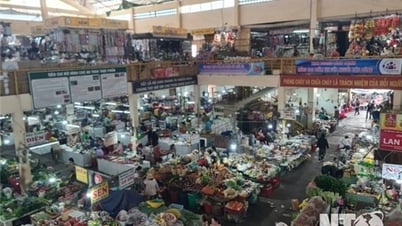







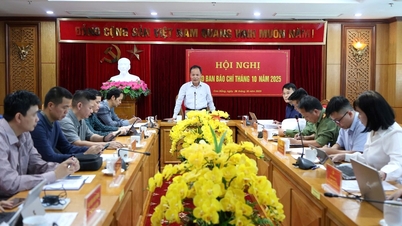
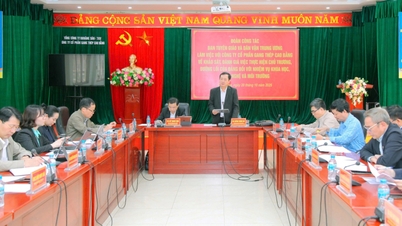

![[Photo] President Luong Cuong attends the 80th Anniversary of the Traditional Day of the Armed Forces of Military Region 3](https://vphoto.vietnam.vn/thumb/1200x675/vietnam/resource/IMAGE/2025/10/28/1761635584312_ndo_br_1-jpg.webp)
![[Photo] Draft documents of the 14th Party Congress reach people at the Commune Cultural Post Offices](https://vphoto.vietnam.vn/thumb/1200x675/vietnam/resource/IMAGE/2025/10/28/1761642182616_du-thao-tai-tinh-hung-yen-4070-5235-jpg.webp)






















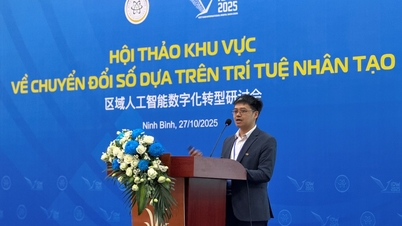

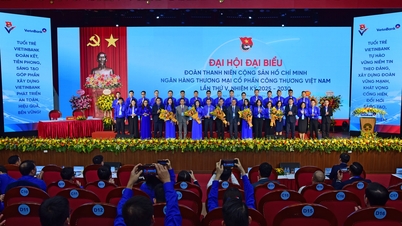
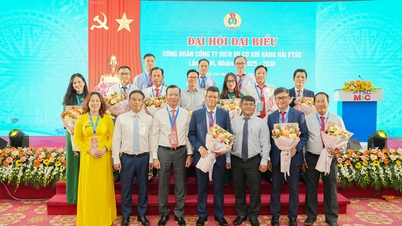












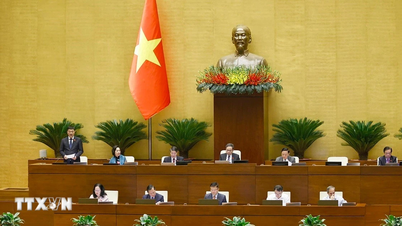

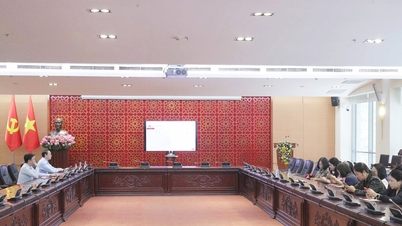


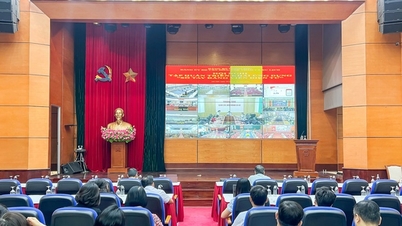



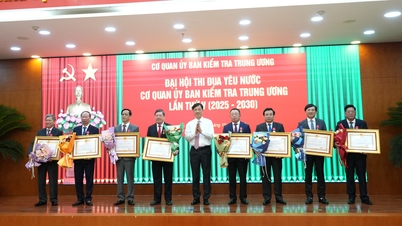

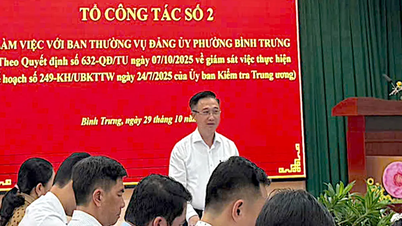



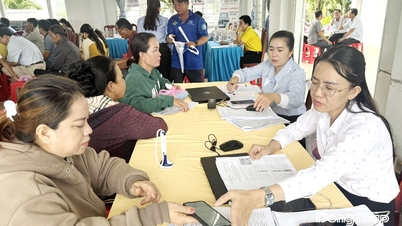

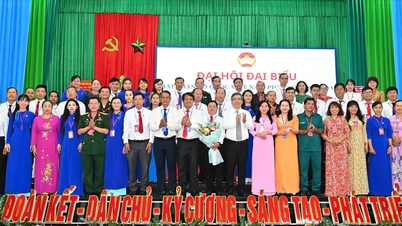
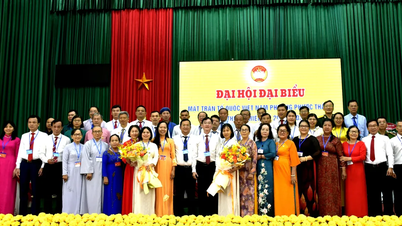

















Comment (0)